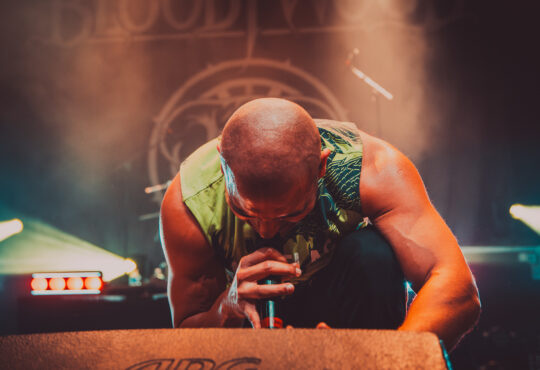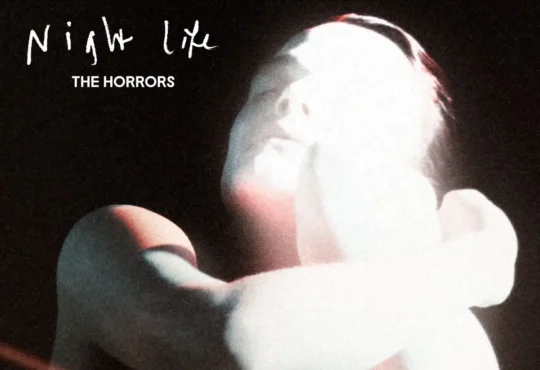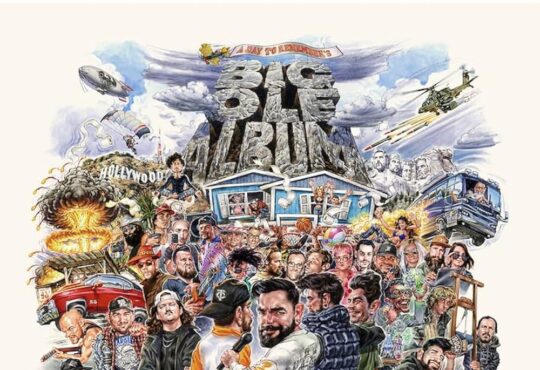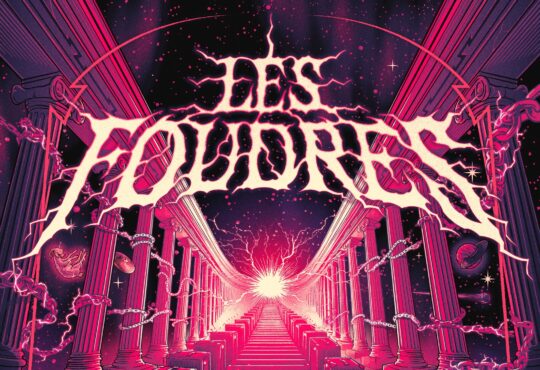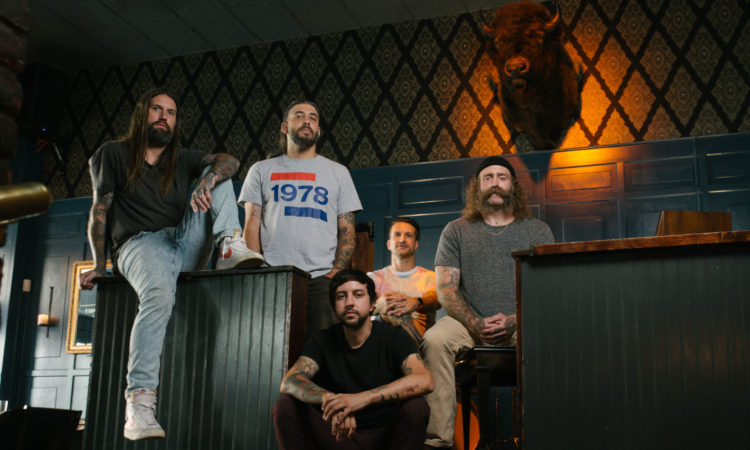
Five long years passed between Low Teens (2016) and Radical, the new album by Every Time I Die. Written and recorded before the pandemic, the furious Buffalo band had to take their time to offer us one of the best metal records of the year and probably one of their best releases. During all this time, singer Keith Buckley went through many trials that shaped a new man, quite different from the one he was when he wrote this new album. This paradoxical variation gives rise to unprecedented existential questions that are nevertheless so enlightening about our perpetual quest for identity and happiness. We had the chance to talk with Keith Buckley. A guy as humble and accessible as he is intelligent.
Hi Keith, is everything okay with you?
Keith Buckley (vocals): Hi! Yes sorry, I’m currently driving and I couldn’t get the mute on my phone off. We’re going to have to do this interview while I’m driving, but that’s cool! Where are you?
At home, in Paris.
And what do you think of Paris?
Like almost all Parisians, a hate-love relationship with this city.
Keith: I know exactly what you mean. I love Paris, it fascinates me, but that’s because I’m a huge fan of literature, so your city is perfect for that. Did you know that there is a specific term in Japanese, and only for Japanese, describing coming back from a trip to Paris and getting depressed because Japanese people might have been disappointed by Paris? They have such an image of Paris that sometimes they are so disappointed by the visit that they get depressed. It’s crazy!
Indeed, it’s crazy! You have the same kind of relationship with Buffalo. Your city is really a central character in your music.
Keith: So much so! I actually left Buffalo a while ago. It’s still the closest city to me but I don’t really live there anymore. It’s very interesting that you describe Buffalo as a character in our music. I think if Buffalo was a fictional character, his best friend would be the character that Paris is for you! I think they would have a lot of problems together! (laughs)
How do you feel about the fact that Every Time I Die’s music still generates a lot of enthusiasm and brings more and more new fans, after so many years and albums?
Keith: I am of course extremely grateful to our fans, old and new. And I’m especially proud that we have a very open and inclusive community. Our fans are very welcoming to new people, as long as they are not hateful or negative people. If what you’re saying is true and we’re getting more and more successful, the timing is perfect. Because I think our fans are really willing to grow our community. It’s not just a matter of cramming hundreds of people into an unconnected room.
Your annual festival in Buffalo is growing every year by the way. You pay particular attention to programming young up-and-coming bands. In order to help them as much as possible?
Keith: Yes and no. It’s not a matter of betting on them or putting any pressure on them like: “you’re the next big successful band“. It’s just that when we started ETID, in our first 5 years I would say, I would have liked to have met people who would have treated us the same way we treat these bands, without giving me too much credit. Just having established bands interested in us by the way! I don’t feel threatened by these artists, it’s not a question of fearing being replaced, on the contrary. I want to help them as much as I can to grow, to develop their own universe because I am convinced that by having this possibility, the public will like them all the more.
We were talking to Employed To Serve a while ago and they mentioned you as a major inspiration on how to manage your career. Being consistent, continuing to put out great albums after so many years and building a solid foundation.
Keith: It’s an honour to be quoted as an example. I don’t know them, I’ll check out their music! From the outside I understand that one might think that our career is built meticulously, going step by step. But at the time, we were just making the choices that we felt were right. I’m going to quote a person I hate and I won’t name him, but: “The big picture hides the smallest details“.
Let’s talk about Radical now. In the song “AWOL”, you repeat: “I owe myself an apology, I hope I mean it“. This line perfectly sums up the message of the album about the difficulty of forgiving yourself, loving yourself and taking care of yourself.
Keith: I know that most people think that taking care of ourselves is the last thing that should be on our minds, especially when it comes to fixing our mistakes. We think we need to go back to the people we hurt first, apologise and repair the relationships that existed before. We think that then we will be able to forgive ourselves and move on. But it’s totally the opposite.
It’s much harder to be good to others when you’re not good to yourself in the first place.
Keith: (big sigh of relief) That’s exactly it! You are the first person to put it so clearly! It’s so obvious to me, and it was so obvious to me that that was the message of the album that I didn’t feel the need to say it. But the more it went on, the more I thought that in the end it wasn’t as obvious as that! But yes, you have to take care of yourself first. If you think you have to make it up to people first, but it’s based on a bad idea of yourself, those relationships won’t work out well.
You wrote and recorded this album long before it came out and you were in a totally different state of mind then than you are now (ed.the album was recorded before the pandemic. Keith has been sober for a year and has separated from his wife, the mother of his daughter). During the various confinements, did you feel like rewriting or re-recording some songs. Was it because you were afraid to face the person you used to be?
Keith: Yes and no. I knew when I was writing this album that there would come a time when I would have to face this person I didn’t want to be anymore. But I wanted to do it, I wanted to challenge myself. Ideally I would have liked to deal with my problems first, but I had a mission to write this album. So I challenged myself to write a record about the person I was about to become. In that way, it makes the songs timeless in a way.
You use these songs as a reference, as a basis to build on.
Keith: Exactly. I knew that when I wrote these lyrics, I would have to be rigorous about not running away from my desire to change. In our world today, especially in the United States, I believe we need to make a clear list of the things we value most. Our country is sliding further and further into fascism, and everything we love is going to be taken away. And no one is going to save us this time. We have to be ready to defend what we love.
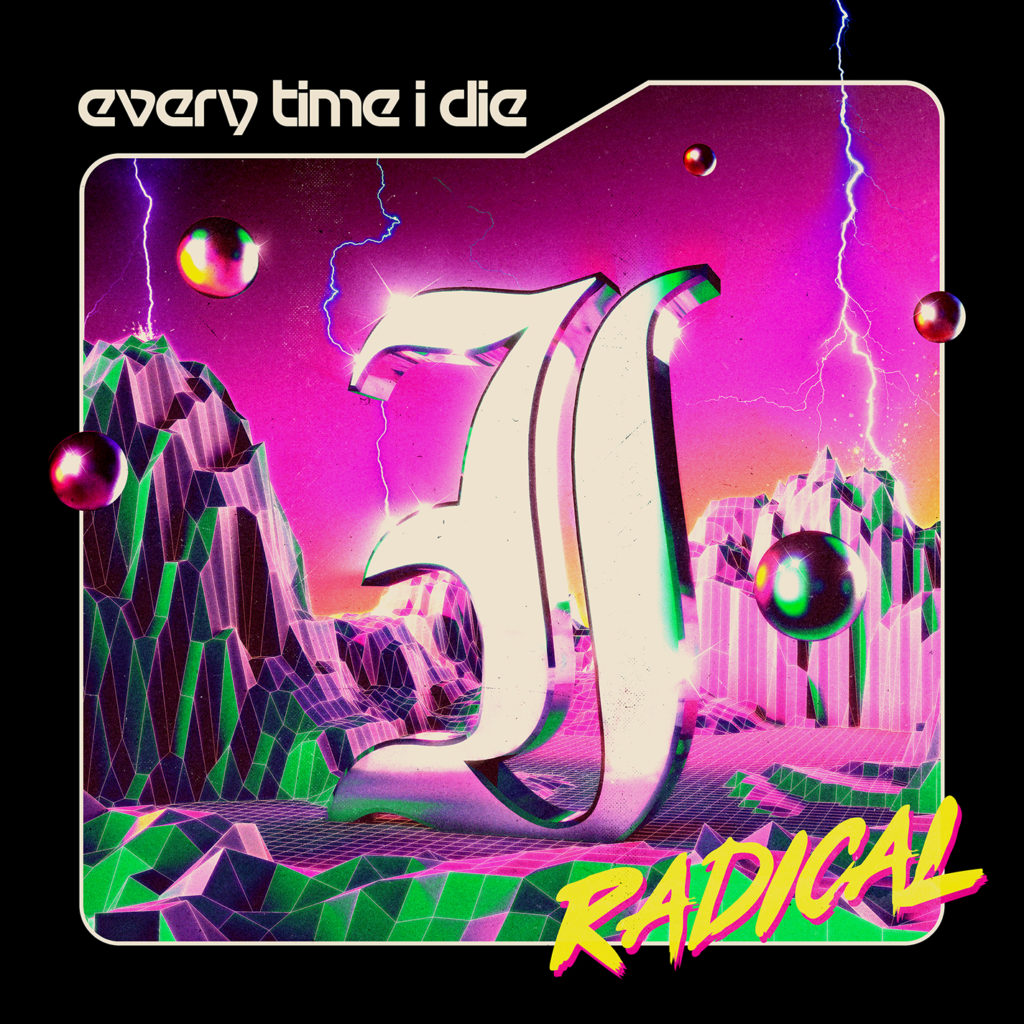
It’s funny that you should talk about this. We are currently experiencing in France almost the same thing you went through with Trump. Whereas the French all thought they would never face a similar situation to yours a few years ago.
Keith: Oh shit I didn’t know, good luck man! But you know, basically Trump‘s supporters, or that kind of character, are people who don’t trust anything or anyone. They don’t believe in science, government or the police. And I understand them, it’s hard to believe in those institutions these days. But when you lose your trust in these pillars, you start to believe in conspiracies, in plots. You start to believe only in your religion or in bad things for society. That’s why it’s important to first identify who we are fundamentally so that we can identify what we can trust.
You said a while ago that you understood conspiracy theorists because not believing the government was normal. But that the conspiracy drifts were the result of misusing their reasoning. It’s very interesting to bring this nuance which tends to go against the desire to divide and oppose people more and more.
Keith: But this album is not meant to divide people. I hope that people will never think that I want to divide people. This album is about making people aware of who they really are. Mind you, I’m not telling listeners who they should be or what they should do. Only to take the time to realise who they are and try to act accordingly.
Getting back to the conspiracy theorists, QAnon and all that stuff, I maintain that they are indeed misusing their brains to come up with all these crazy theories. But mostly I think these people hate the elites, not least because they are not part of the elite. And so they must feel the need to act like they are smarter. The truth is that they are desperate to be part of the highest social class, so much so that they question science. Why don’t we forget about the whole competition, upward mobility thing and all working in the same direction, for the common good?
Do you think, in this sense, that your new album is for everyone? It takes a certain maturity to face yourself, something that comes with age too.
Keith: Indeed, I think that the older you get, the closer you get to the message of this album, that’s undeniable. But at the same time, younger people might have a more intense emotional connection with the message, which will allow them to hear it in a certain way. It’s because of this sensitivity that these people are interested in music in the first place! Their sensitivity and their open-mindedness lead them to build an identity through music in particular. When you’re young, you think that all the songs you listen to are meant for you, so it gives you the possibility to become anything you want! My message is that if you’re 15 or 16 and this is your first Every Time I Die concert, maybe you’re a political activist in the making but you don’t know it yet. Maybe you’re a politician in the making because you’re a dickhead, and you don’t know it yet! (laughs)
Let’s go back to Buffalo for a few minutes: in the video for “Post-Boredom”, the radio ad describes Every Time I Die as your city’s heroes but you’re not even on Buffalo’s Wikipedia page!
Keith: WHAT?! We’re not?! What a shame! (laughs) It makes me laugh so hard that you went and checked that out. But I’m not surprised. It takes a long time to be recognized in Buffalo. But I think I know why: if you get bigger than Buffalo, Buffalo will reject you!
We have the same relationship with Paris.
Keith: But you are Paris! You have tons and tons of prestigious cultural references, an incredible history. So it’s one thing to want to think you’re bigger than Paris, it’s quite another to want to seduce Buffalo and get rejected again and again! (laughs)
In France, the only thing we know about Buffalo is Every Time I Die.
Keith: But yes! How dare Buffalo compare themselves to us! (laughs) I think we’ll only get the recognition of our city the day we split. Then people will remember that there was this band with some success and then they will be scandalized why we are not there anymore!
To conclude, as our website is called RockUrLife, so what rocks your life, Keith?
Keith: Let me think. What am I listening to at the moment that’s pretty worshipful. The new Knocked Lose EP! The new SeeYouSpaceCowboys album! I don’t have too many ideas, but I’ll say these two!
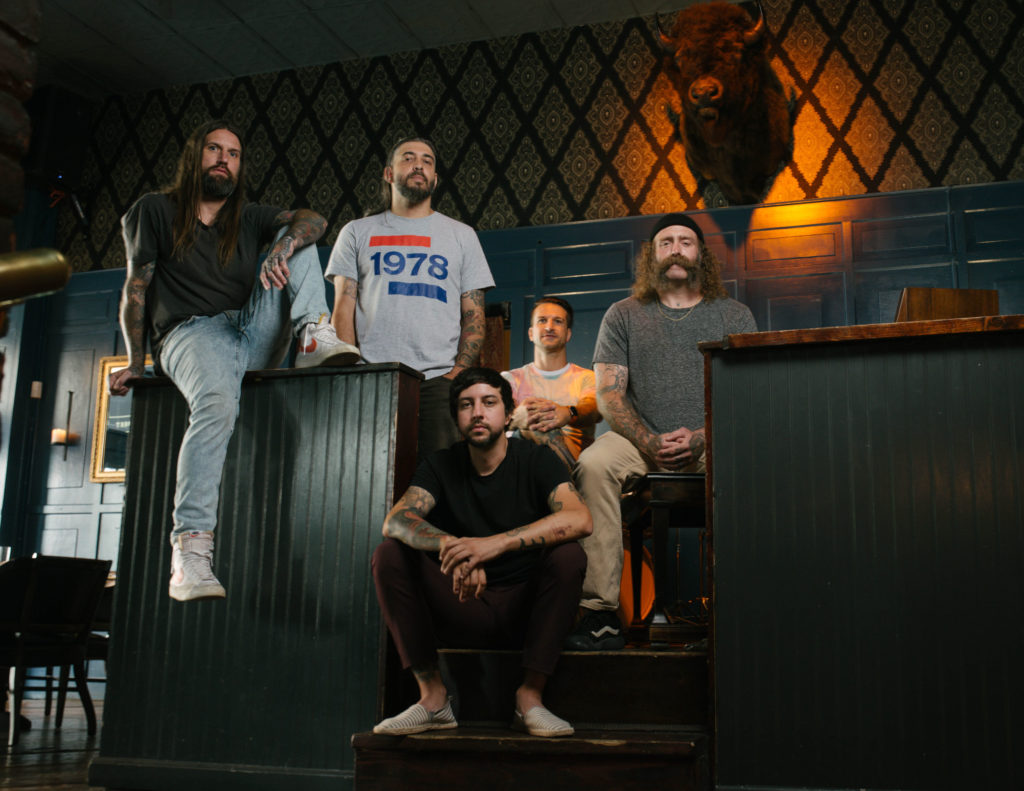
Website: everytimeidie.net



